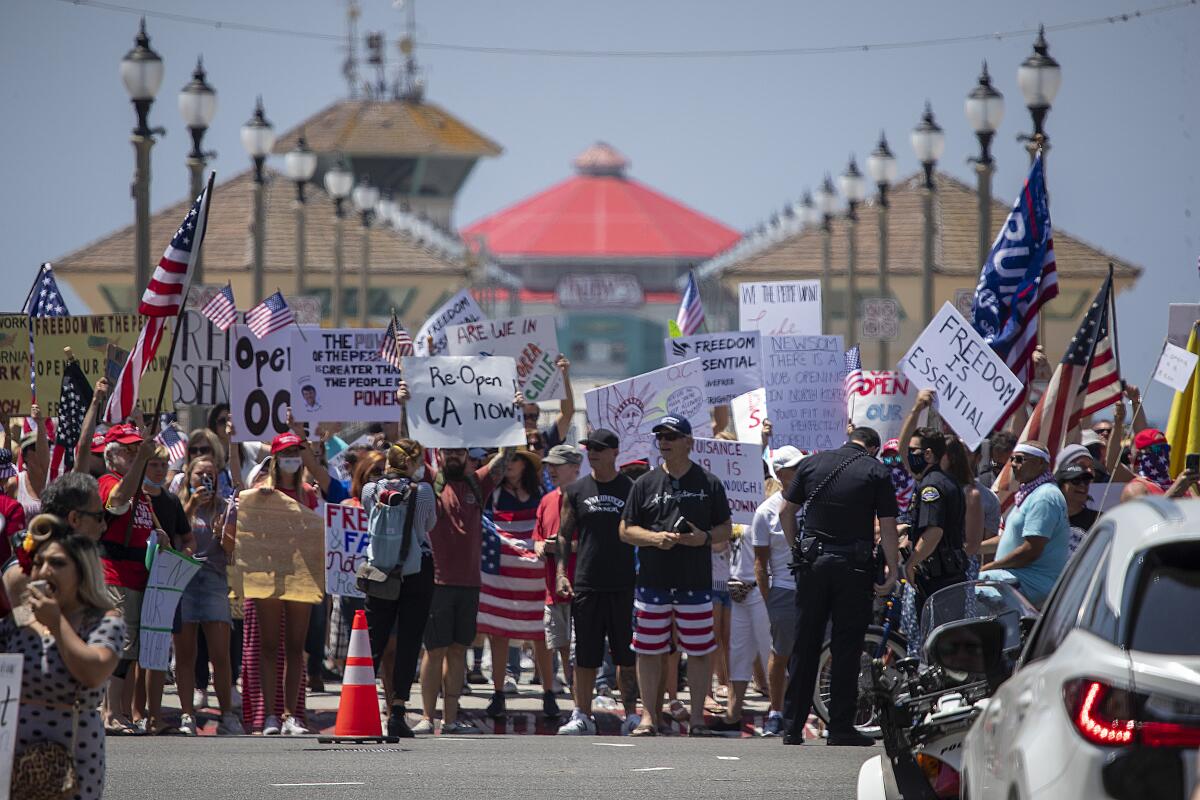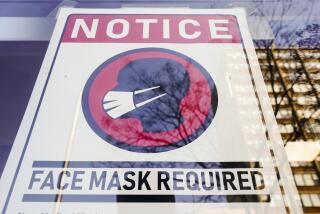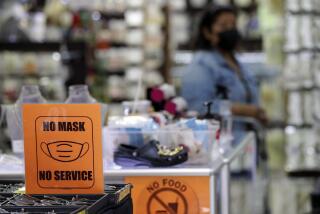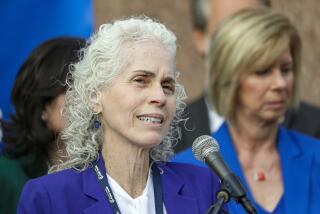Letters to the Editor: Mask refusers would not have done well in World War II

- Share via
To the editor: I grew up in Great Britain during World War II. Now I write while sequestered at home in California because of COVID-19. (“In Orange County, Heart of the Mask Resistance, a Doctor Tries to Restore Faith in Science,” column, Aug. 1.)
Although the pandemic has already caused more than 156,000 deaths in the United States, some people refuse to follow guidelines that they say violate their rights. How would these people have responded to the situation in Britain in 1940?
Families were broken up. Millions of children, pregnant women and other vulnerable people were evacuated from cities. How would you react to having your children taken away or to having strangers’ children billeted in your home? How would you react to having to put up your car on blocks for several years as private individuals could not purchase gasoline? How would you react to access to beaches being prevented by barbed wire and landmines?
That is how it was in Britain in 1940.
Now, to minimize transmission of the coronavirus, we are simply required to wash our hands, avoid crowds, socially distance and wear a face covering in public. Let us all fight this virus together as if we were at war.
Wilfred Elders, Riverside
..
To the editor: In dealing with people’s refusal to wear masks, it might be useful to consider a concept from psychology called the Health Belief Model. This says that people’s willingness to change their behavior depends on certain personal beliefs.
The first belief relates to susceptibility: How vulnerable am I to COVID-19? What are my chances of being infected?
The second belief relates to severity: If I get the disease, how bad is it likely to be? I may not change my behavior if I think infection will not endanger me.
The third relates to benefit: If I change my behavior as recommended, how likely is it to improve my chances? If I doubt that a mask will make any difference, why bother?
The fourth relates to barriers: How much of a hassle will it be to change my behavior? Masks make communication more difficult and fog my glasses. What’s more, I feel like a wuss wearing one.
There are other factors to consider, but this model has been applied to smoking cessation, weight loss, wearing seat belts and lowering blood pressure.
Robert Levor, Los Angeles
The writer is a clinical psychologist.
..
To the editor: Thanks to Steve Lopez for his column on the effort by Dr. Eric Alcouloumre, an Orange County emergency room physician, to combat misinformation on masks and COVID-19.
From the very beginning, President Trump minimized the severity of the problem, refused to follow medical advice, failed to implement an effective national response, and succeeded in making this a partisan issue, much to our country’s detriment.
As a result, our economic recovery will be a very long time in coming, a circumstance Trump unfortunately fails to grasp. His actions and those of his cult members are not only resulting in thousands of needless deaths, they are also forcing our country into an economic tailspin that will cause even more suffering for a long time to come.
Mary Carlson, Mission Viejo
More to Read
A cure for the common opinion
Get thought-provoking perspectives with our weekly newsletter.
You may occasionally receive promotional content from the Los Angeles Times.









